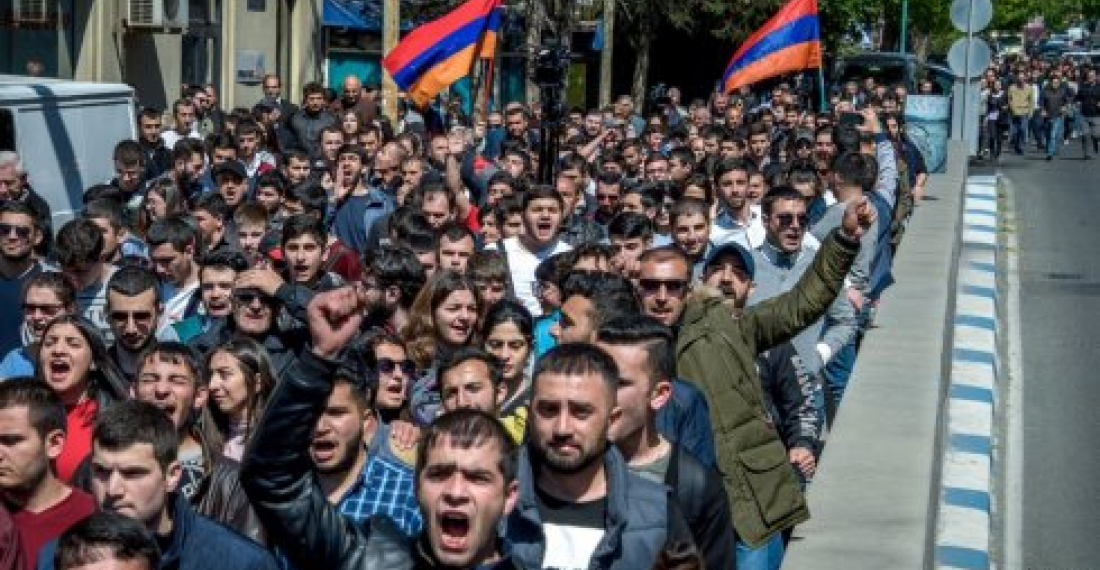Protestors gathered at various points in the Armenian capital Yerevan on Monday (16 April) to protest against the nomination of Serzh Sargsyan as prime minister of Armenia. Protestors blocked streets and bridges and threathened to march on the National Assembly building where a vote on Mr Sargsyan's nomination is expected tomorrow.
Serzh Sargsyan served as president of Armenia for the last ten years. Last week his two terms in office expired and a new president was elected. But under constitutional arrangements recently adopted all the powers of the president have now been transferred to the prime minister.
The police deployed barbed wire barricades, police in riot gear and gas masks and other means to stop the crowds approaching the national assembly building. Some incidents have been reported and Armenian media sources describe the situation as tense. Reports say that the leader of the protest, MP and leader of the Yelk Party, Nikol Pashinyan had received medial aid in a nearby clinic after suffering injuries in the scuffles
Earlier the Republican Party of Armenia and the Armenia Revolutionary Federastion (Dashnak Party) who form Armenia's ruling coalition formally proposed Serzh Sargsyan's nomination as prime minister ahead of tomorow's vote.
source: commonspace.eu with agencies
photo: Demonstrators move towards the building of the national Assembly in the Armenian capital Yerevan on Monday 16 April (picture courtesy of of Azatutyun.org/Radio Liberty)






